The EAHP EU Monitor is a regular round up of news relevant to hospital pharmacy in Europe.
Registrations and abstract submissions are open to the 28th EAHP Congress!

The next EAHP Congress will take place in Bordeaux, France, between 20 and 22 March 2024 and will focus on Sustainable healthcare – Opportunities & strategies.
The abstract submission is now open until 1 October 2023. All hospital pharmacists, other healthcare professionals, and scientists are strongly encouraged to submit their work for consideration by the EAHP Scientific Committee. If accepted, this could lead to the display at the annual EAHP Congress. The registrations for the Congress are also open and you can benefit from an Early Bird Rate.
All information and Registration links can be found HERE
Submit your abstract proposal HERE
EAHP’s General Assembly adopted a new Position Paper on Infectious Diseases and Antimicrobial Resistance!
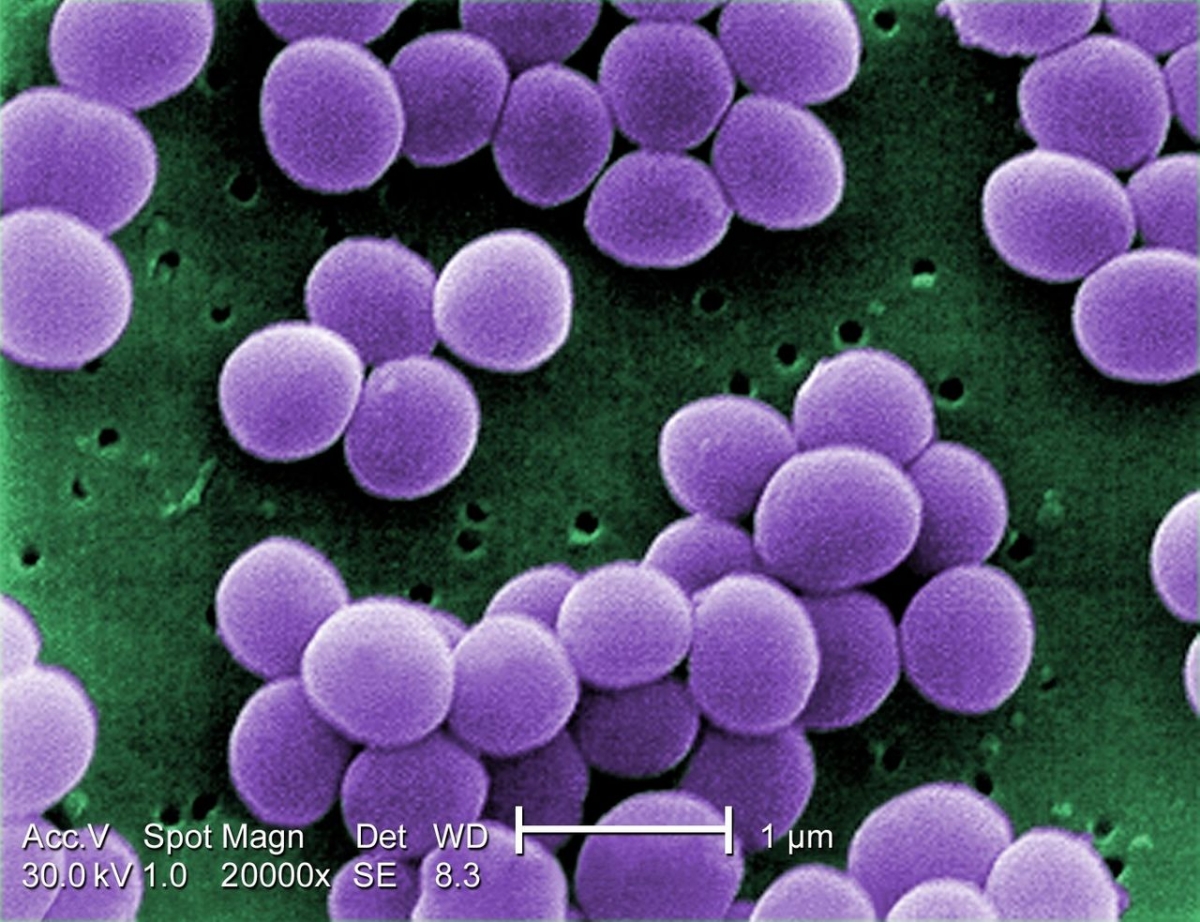 This year’s General Assembly of the European Association of Hospital Pharmacists (EAHP) adopted a new Position Paper on Infectious Diseases and Antimicrobial Resistance. Combating infectious diseases requires the implementation of a comprehensive intervention package comprised of measures including but not limited to prudent anti-infective use, vaccination and stewardship. In order to maintain the efficacy of antimicrobial drugs and to prevent the further spread of antimicrobial resistance, it is essential to have an interprofessional approach in the healthcare setting and during the transition of care.
This year’s General Assembly of the European Association of Hospital Pharmacists (EAHP) adopted a new Position Paper on Infectious Diseases and Antimicrobial Resistance. Combating infectious diseases requires the implementation of a comprehensive intervention package comprised of measures including but not limited to prudent anti-infective use, vaccination and stewardship. In order to maintain the efficacy of antimicrobial drugs and to prevent the further spread of antimicrobial resistance, it is essential to have an interprofessional approach in the healthcare setting and during the transition of care.
The Position Paper calls on national governments and health system managers to utilise the specialised background and knowledge of hospital pharmacists in multi-professional antimicrobial stewardship teams or other forms of antimicrobial governance in the hospital and in the community. It also underlines that hospital pharmacists are an integral part of the transfer of care to ensure that care could continue when patients leave the hospital.
Investing in prevention strategies, infection control and immunisation should be considered and further consolidating the role of hospital pharmacists in European vaccination strategies is paramount. In this sense, the universal application of prevention and control measures published by the European Centre for Disease Prevention and Control and the World Health Organisation among healthcare professionals and the public it is recommended in the fight against infectious diseases. Considering the One Health Approach, adequate regulatory oversight and proper implementation of measures in the veterinary sector and the environment on global, European, national and local levels need to be addressed.
Governments need to make arrangements so that essential antibiotics in dosage forms and strengths appropriate for both adults and children will be maintained on the market with contingency stock level arrangements and alternative production by hospital pharmacists enabled where necessary.
Have a look at the Position Paper on Infectious Diseases and Antimicrobial Resistance HERE
The EU is going further in tackling shortages of antibiotics
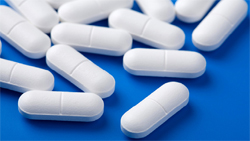 On 17 July, the European Commission, the Heads of Medicines Agencies and the European Medicines Agency (EMA) issued recommendations for actions to avoid shortages of essential antibiotics used to treat respiratory infections for European patients in the next winter season.
On 17 July, the European Commission, the Heads of Medicines Agencies and the European Medicines Agency (EMA) issued recommendations for actions to avoid shortages of essential antibiotics used to treat respiratory infections for European patients in the next winter season.
Such recommendations have been developed through the Executive Steering Group on Shortages and Safety of Medicinal Products (MSSG) and complement the process to develop an EU list of critical medicines. The Commission will work closely with member states and will take operational follow-up actions and if necessary possible joint procurements.
Among the proposed recommendations are, on the one hand, the increase in the production of key antibiotics, by asking early action manufacturers to ensure adequate continuity of supply in the next autumn and winter. On the other hand, EMA and the European Commission, together with member states, will continue to monitor the demand and supplies in cooperation with companies. All stakeholders are reminded to order medicines as normal. Stockpiling medicines should not be made since it can cause or worsen shortages.
Find more information HERE
Guidance for the transition of clinical trials from the Clinical Trials Directive to the Clinical Trials Regulation
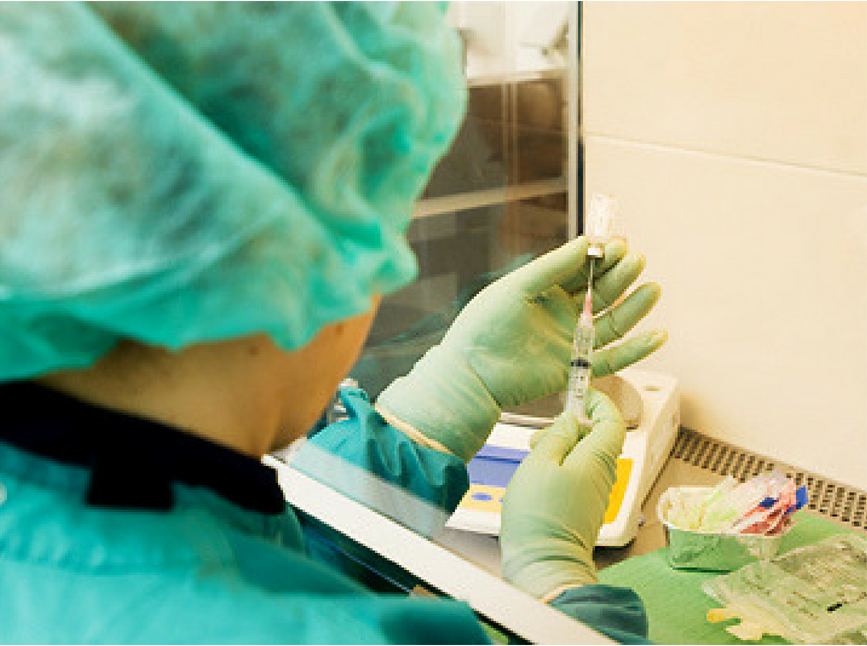 The European Commission developed a Guidance for the transition of clinical trials from the Clinical Trials Directive to the Clinical Trials Regulation (CTR). This document replaces Chapter 11 of the Question and Answers (Q&A) on the application of the CTR.
The European Commission developed a Guidance for the transition of clinical trials from the Clinical Trials Directive to the Clinical Trials Regulation (CTR). This document replaces Chapter 11 of the Question and Answers (Q&A) on the application of the CTR.
This guidance document covers areas such as when clinical trials have to be transitioned, what are the conditions to transition a trial to the Regulation, the consequences of the transition for a clinical trial, and what are the applicable transparency requirements.
More information is available HERE
EU4Health calls for action grants
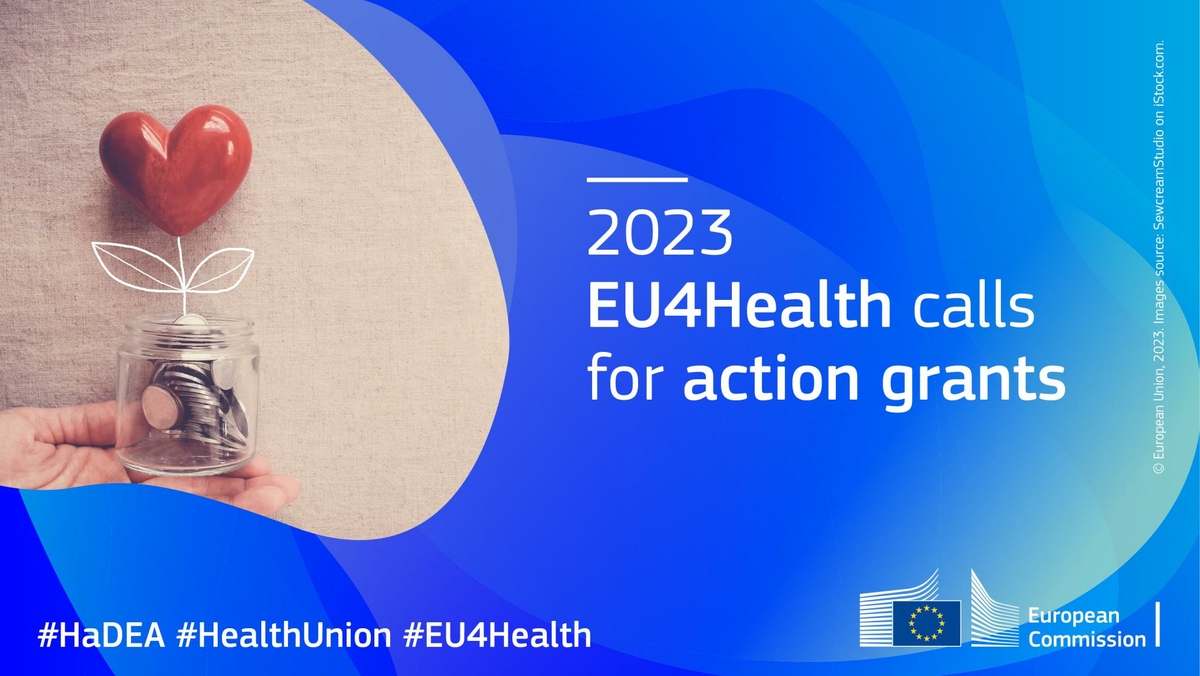 The European Health and Digital Executive Agency (HaDEA) has published 12 calls for proposals under the 2023 EU4Health Work Programme. The deadline for applications is 17 October 2023.
The European Health and Digital Executive Agency (HaDEA) has published 12 calls for proposals under the 2023 EU4Health Work Programme. The deadline for applications is 17 October 2023.
HaDEA together with the European Commission’s Directorate-General for Health and Food Safety, the Directorate-General for Health Emergency Preparedness and Response and the Directorate-General for Energy presented more information on this wave of calls last 30 June.
The areas covered in this open call include healthcare access, mental health, non-communicable diseases and cancer. The calls have a total budget of 19 960 000 euros and include calls for supporting access to medical devices for cross-border health threats and for the safety and on the safety and quality of new Substances of Human Origin (breast milk, faecal microbiota transplants).
The EU4Health programme is a response to the COVID-19 crisis and it is the instrument to pave the way towards a European Health Union. The 2023 annual work programme of the EU4Health has four main strands: (i) crisis preparedness; (ii) health promotion and disease prevention; (iii) health systems and healthcare workforce; and (iv) digital. Also, cancer is a cross-cutting strand.
More information on the calls is available HERE
The documents from the info session mentioned above are available HERE
GS1 Healthcare Global Conference 2023
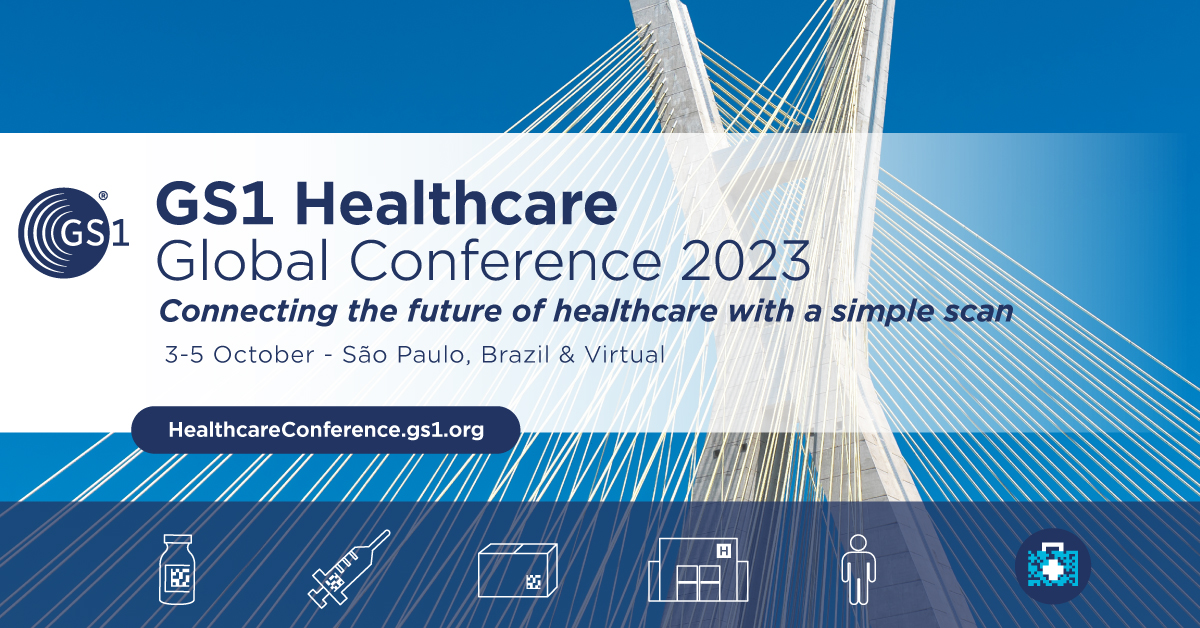 The 38th GS1 Healthcare Conference 2023 on “Connecting the future of healthcare with a simple scan” will be held both in São Paulo, Brazil and virtually between 3 and 5 October 2023.
The 38th GS1 Healthcare Conference 2023 on “Connecting the future of healthcare with a simple scan” will be held both in São Paulo, Brazil and virtually between 3 and 5 October 2023.
The event will bring together healthcare professionals from around the world to share experiences, learn from each other, and discuss the challenges and successes of harmonisation, using GS1 standards.
This 3-day hybrid conference will host speakers from diverse sectors of the healthcare industry, discussing updates, experiences and best practices on pharmaceutical traceability, hospital transformations, and unique device identification (UDI) regulations.
The agenda will cover areas such as healthcare provider experiences with data management, point of care scanning for pharmaceuticals and medical devices, hospital supply chain and logistics, efficient UDI implementation and UDI data management and quality.
More information is available HERE
You can register HERE
EJHP: Expanding the role of pharmacy technicians and foundation rotational pharmacists in delivering patient-centred care at a mental health trust: development of a Medicines Optimisation Intervention Track Tool
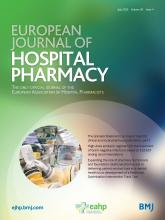
A recent online first article published in the European Journal of Hospital Pharmacy (EJHP) aims to develop a simple tool to effectively prioritise the workload among the Medicines Optimisation Team. It is an observational case series study with a “Medicines Optimisation Interventions Tracking Tool” that was designed to capture the team’s daily interventions focusing on medicines reconciliation, admission, follow-up and discharge. This system facilitates an efficient clinical priorisation of work for the Medicines Optimisation Team. It demonstrated that the role of pharmacy technicians is critical for the implementation of the tool and patient outcomes, which is in line with the UK Hospital Pharmacy and Medicines Optimisation plan dated 2016.
Read the article HERE
[Consultations]
EMA Consultation: Draft ICH E6 (R3) guideline on good clinical practice – step 2b
EMA has published a consultation on the International Conference on Harmonisation (ICH) Good Clinical Practice Guideline to provide a unified standard to facilitate the mutual acceptance of clinical trial data for ICH member countries and regions by applicable regulatory authorities. The guideline builds on key concepts outlined in ICH E8 (R1) General Consideration for Clinical Studies. This includes fostering a quality culture and proactively designing quality into clinical trials and drug development planning, identifying factors critical to trial quality, and engaging stakeholders, as appropriate, using a proportionate risk-based approach. Comments should be provided by 26 September 2023.
Find the document HERE
EMA Consultation: ICH Reflection Paper on international harmonisation of RWE terminology
EMA published an International Council for Harmonisation of Technical Requirements for Pharmaceuticals for Human Use (ICH)’s Reflection Paper on “Proposed international harmonisation of real-world evidence (RWE) terminology and convergence of general principles regarding planning and reporting of studies using real-world data, with a focus on effectiveness of medicines”, co-authored by EMA, US FDA and Health Canada. The deadline for comments is 30 September 2023.
Contribute HERE
EMA Consultation: Concept Paper on the development of a Guideline on the quality aspects of mRNA vaccines
The Concept Paper addresses the need to establish a guideline on the quality aspects of mRNA vaccines. The scope of the guideline focuses on the mRNA vaccines against infectious diseases (including self-amplifying mRNA). It is not intended to address specific requirements for mRNA vaccines to be used in clinical trials, but the scientific principles described may also be applicable during pharmaceutical development. The deadline for comments is 30 September 2023.
Contribute HERE
European Paediatric Formulary: Furosemide oral solution monograph
The European Directorate for the Quality of Medicines & HealthCare (EDQM) has just released Issue 7 of Pharmeuropa PaedForm, in which the draft text for Furosemide 2 mg/mL Oral Solution is published for public consultation with a view to its later inclusion in the European Paediatric Formulary. This is the second round of public consultation for this text that was first published in issue 2 of Pharmeuropa PaedForm. The EDQM welcomes all comments on the revised monograph from users and interested parties. The deadline for comments is 30 September 2023.
Contribute HERE
EMA Consultation: reflection paper on the use of artificial intelligence in the lifecycle of medicines
EMA launched a draft reflection paper outlining the current thinking on the use of artificial intelligence (AI) to support the safe and effective development, regulation and use of human and veterinary medicines. The document reflects on principles relevant to the application of AI and machine learning (ML) at any step of a medicine’s lifecycle, from drug discovery to the post-authorisation setting. All interested parties are invited to comment on the consultation. The public consultation is open until 31 December 2023.
Contribute HERE
Bedside clinical pharmacists in Europe
In this research, organized by the Semmelweis University, Hungary the position of bedside clinical pharmacists in hospitals will be assessed to gain insight into the routine practices and the provided clinical pharmacy services. The researchers would like to hear your opinion based on your experiences, so there are no correct or incorrect answers. It takes about 15 minutes to complete the questionnaire.
Contribute HERE
























 This year’s General Assembly of the European Association of Hospital Pharmacists (EAHP) adopted a new Position Paper on Infectious Diseases and Antimicrobial Resistance. Combating infectious diseases requires the implementation of a comprehensive intervention package comprised of measures including but not limited to prudent anti-infective use, vaccination and stewardship. In order to maintain the efficacy of antimicrobial drugs and to prevent the further spread of antimicrobial resistance, it is essential to have an interprofessional approach in the healthcare setting and during the transition of care.
This year’s General Assembly of the European Association of Hospital Pharmacists (EAHP) adopted a new Position Paper on Infectious Diseases and Antimicrobial Resistance. Combating infectious diseases requires the implementation of a comprehensive intervention package comprised of measures including but not limited to prudent anti-infective use, vaccination and stewardship. In order to maintain the efficacy of antimicrobial drugs and to prevent the further spread of antimicrobial resistance, it is essential to have an interprofessional approach in the healthcare setting and during the transition of care. On 17 July, the European Commission, the Heads of Medicines Agencies and the European Medicines Agency (EMA) issued recommendations for actions to avoid shortages of essential antibiotics used to treat respiratory infections for European patients in the next winter season.
On 17 July, the European Commission, the Heads of Medicines Agencies and the European Medicines Agency (EMA) issued recommendations for actions to avoid shortages of essential antibiotics used to treat respiratory infections for European patients in the next winter season. The European Commission developed a Guidance for the transition of clinical trials from the Clinical Trials Directive to the Clinical Trials Regulation (CTR). This document replaces Chapter 11 of the
The European Commission developed a Guidance for the transition of clinical trials from the Clinical Trials Directive to the Clinical Trials Regulation (CTR). This document replaces Chapter 11 of the  The European Health and Digital Executive Agency (HaDEA) has published 12 calls for proposals under the 2023 EU4Health Work Programme. The deadline for applications is 17 October 2023.
The European Health and Digital Executive Agency (HaDEA) has published 12 calls for proposals under the 2023 EU4Health Work Programme. The deadline for applications is 17 October 2023. The 38th GS1 Healthcare Conference 2023 on “Connecting the future of healthcare with a simple scan” will be held both in São Paulo, Brazil and virtually between 3 and 5 October 2023.
The 38th GS1 Healthcare Conference 2023 on “Connecting the future of healthcare with a simple scan” will be held both in São Paulo, Brazil and virtually between 3 and 5 October 2023.

